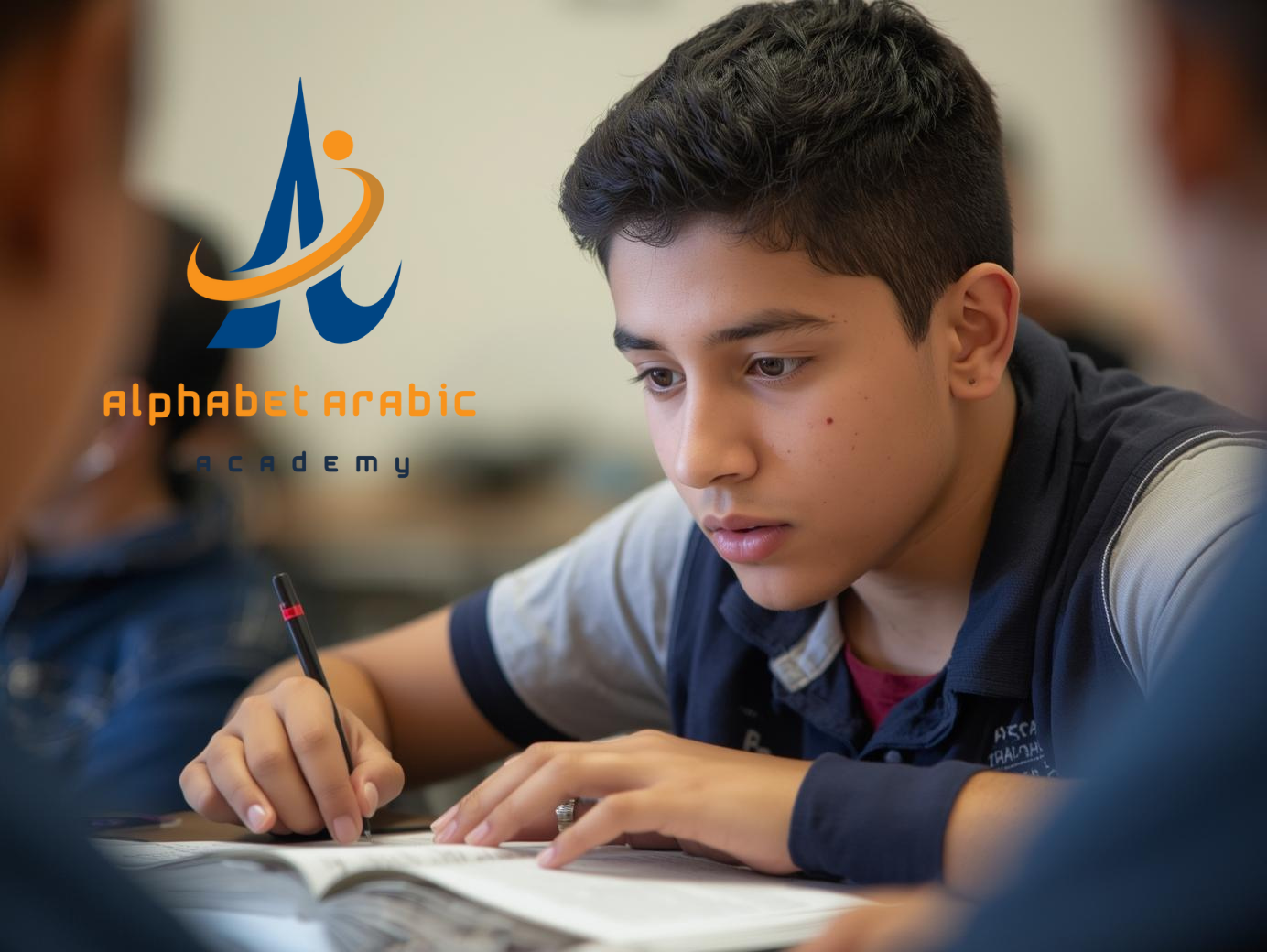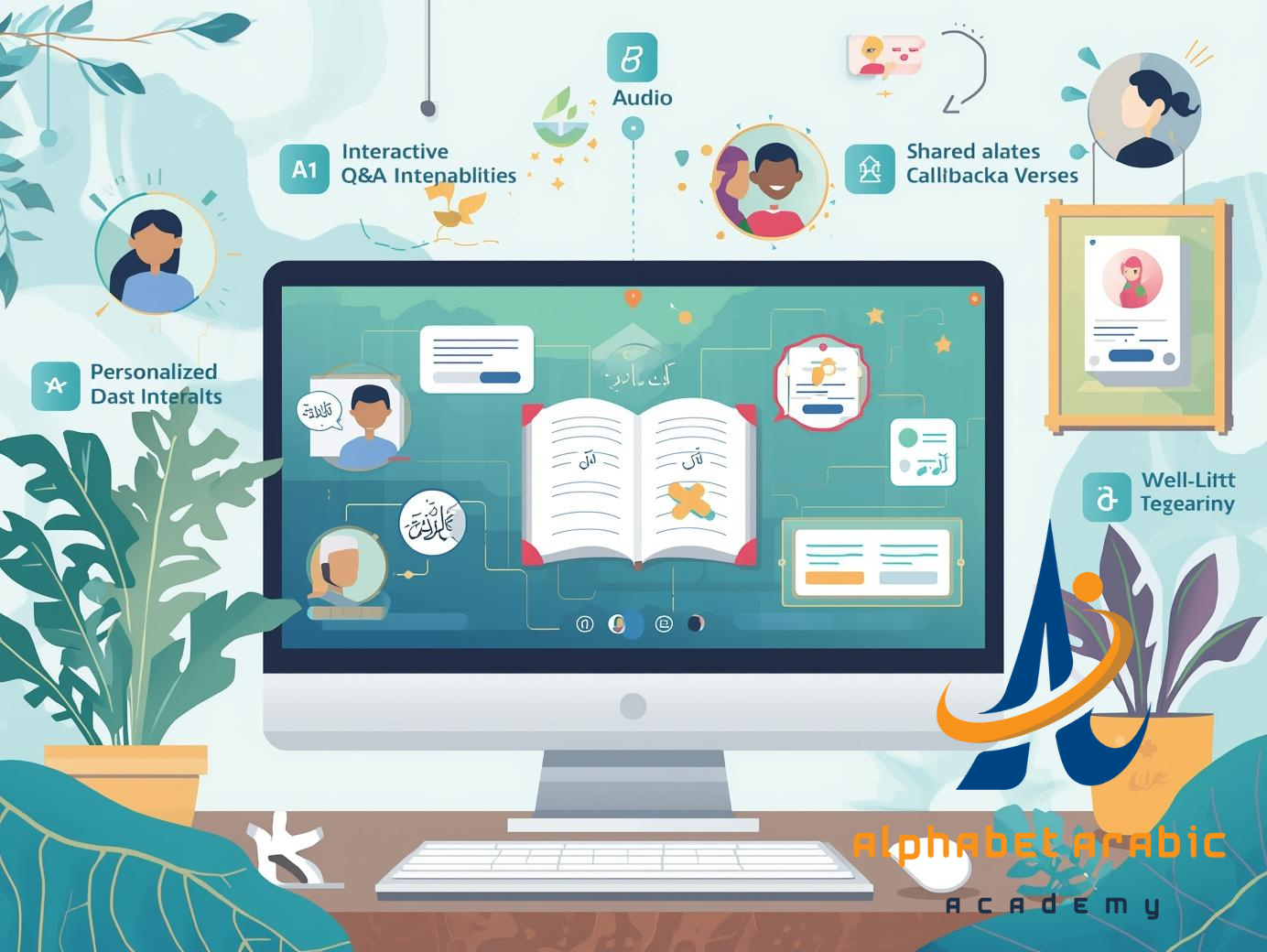Introduction
Learning Arabic has never been more accessible, thanks to the vast range of free online resources. One of the most effective formats for self-paced learn Arabic online PDF. These resources are structured to provide actionable steps for mastering the language, whether you’re a beginner or aiming to reach advanced levels. In this guide, we explore the best free sources for learning Arabic online PDFs, their benefits, and how they can enhance your language journey. Discover the most effective tools to advance in Arabic on your own terms by visiting our academy.

1. Best Free Sources for Learning Arabic Online PDF
Discovering reliable free sources is the key to a successful start. Many websites and organizations provide downloadable PDFs for Arabic learning:
- ArabicPod: Offers beginner-friendly PDFs covering essential vocabulary and grammar concepts.
- Madinah Arabic: Provides structured lessons with downloadable files focusing on foundational aspects like alphabet literacy and basic grammar.
- Jazeera Learning: Includes advanced Arabic materials with accompanying audio.
- Dr. Raheem’s Guides: Free PDFs tailored for Islamic studies and Quranic Arabic.
- University Resources: Many universities release free Arabic textbooks in PDF format for academic purposes.
2. Benefits of Learning Arabic Online PDF
Arabic online PDFs offer several benefits that make them ideal for learners:
- Flexibility: Learn according to your own timetable and speed.
- Comprehensive Content: Includes lessons on grammar, pronunciation, and vocabulary.
- Cost-Effective: High-quality resources at no cost.
- Interactive Features: Many PDFs include practice exercises and audio files for better understanding.
3. How to Choose the Right Arabic Online PDF Course
Choosing the correct course can have a big impact. Consider these factors:
- Your skill level: Novice, proficient, or expert..
- Focus Area: Conversational Arabic, Quranic studies, or Modern Standard Arabic (MSA).
- Interactive Tools: Look for resources with quizzes and audio pronunciation guides.
- Cultural Insights: Choose PDFs that incorporate cultural aspects to enhance understanding.
4. Interactive Features to Look for in Arabic Online PDF Resources
Interactive features can transform your learning experience:
- Audio clips are beneficial for enhancing one’s pronunciation and listening abilities.
- Flashcards aid in improving the retention of vocabulary.
- Practice Exercises: Structured activities for applying what you’ve learned.
- Visual Aids: Illustrations and tables for better comprehension.
5. Tips for Effective Arabic Online PDF Learning
Maximize your learning with these actionable tips:
- Establish particular objectives for every session.
- Dedicate 15-30 minutes daily to studying.
- Use additional tools like apps and online dictionaries.
- Improve your speaking skills with native speakers or tutors.
6. Common Challenges Faced When Learning Arabic Online PDF
Learning Arabic through PDFs comes with challenges such as:
- Lack of Practice: PDFs alone may not provide conversational practice.
- Complex Grammar: Arabic grammar can be daunting without guidance.
- Dialects vs. Standard Arabic: Understanding the difference between MSA and dialects like Egyptian or Levantine.
7. Enhancing Vocabulary and Pronunciation with Arabic Online PDF
Focus on vocabulary-building strategies:
- Use flashcards included in PDF resources.
- Please listen to the provided audio files.
- Practice conjugation and verb usage in sentences.
8. Insight into Cultural Aspects through Arabic Online PDF Learning
Arabic PDFs often include cultural insights, helping learners understand the context of the language. Look for:
- Cultural Stories: Narratives that provide a glimpse into Arab traditions.
- Proverbs and Phrases: Common sayings that reflect cultural values.
- Islamic Studies: Lessons on Quranic Arabic and Tajweed rules.
9. Progress Tracking and Assessment in Arabic Online PDF Courses
Monitor your progress in learning efficiently.
- Complete exercises and quizzes in PDFs.
- Use a study journal to document your milestones.
- Participate in online forums for feedback and support.
10. Community Support and Discussion Forums for Arabic Online PDF Learners
Join online communities to enhance your experience:
- Participate in conversations with fellow learners on discussion boards.
- Share tips alongside resources.
- Seek guidance from experienced learners and tutors.
Conclusion
Arabic online PDFs are excellent resources for mastering the language. From foundational lessons to advanced cultural insights, they cater to various learning needs. To further your journey, consider exploring affordable, comprehensive courses through our website, . We offer interactive features, flexible schedules, and dedicated support at low costs. Join our community and make your Arabic learning journey enjoyable and effective.
FAQs
Can I learn Arabic online for free using PDF resources?
Yes, there are numerous free sources available for learning Arabic online through PDF materials.
Do online Arabic PDF courses provide interactive learning features?
Yes, many online Arabic PDF courses offer interactive features such as quizzes, exercises, and pronunciation tools.
How can I track my progress when learning Arabic online through PDFs?
You can track your progress in Arabic online PDF courses by completing exercises, tests, and participating in online discussions.
Are there any resources for effectively learning Arabic online with PDF?
Some tips include setting specific learning goals, practicing regularly, and engaging with native speakers or language exchange partners.
Do Arabic online PDF courses help in understanding the cultural aspects of the language?
Yes, Online PDF courses teaching Arabic frequently incorporate cultural aspects to offer students a complete grasp of the language and its background.

